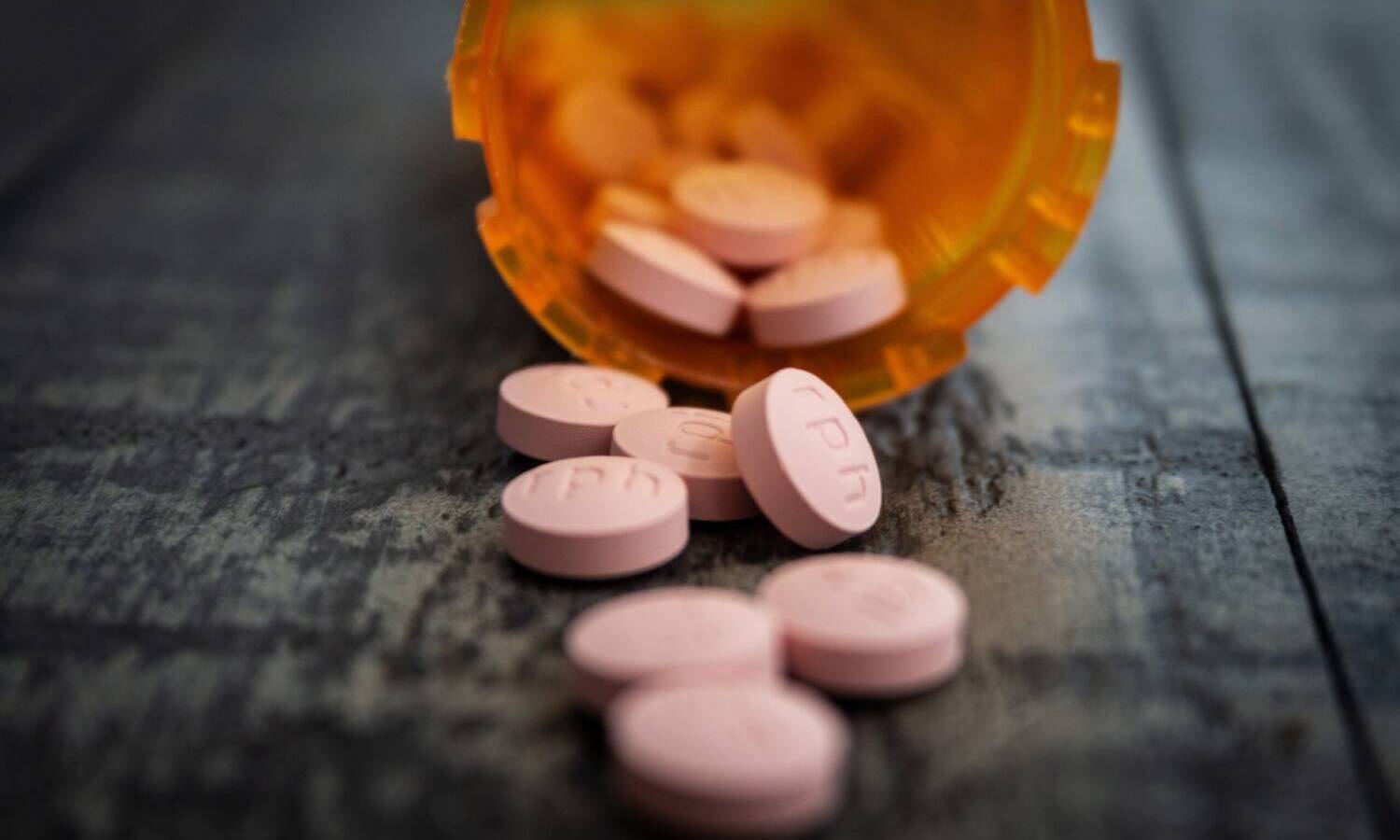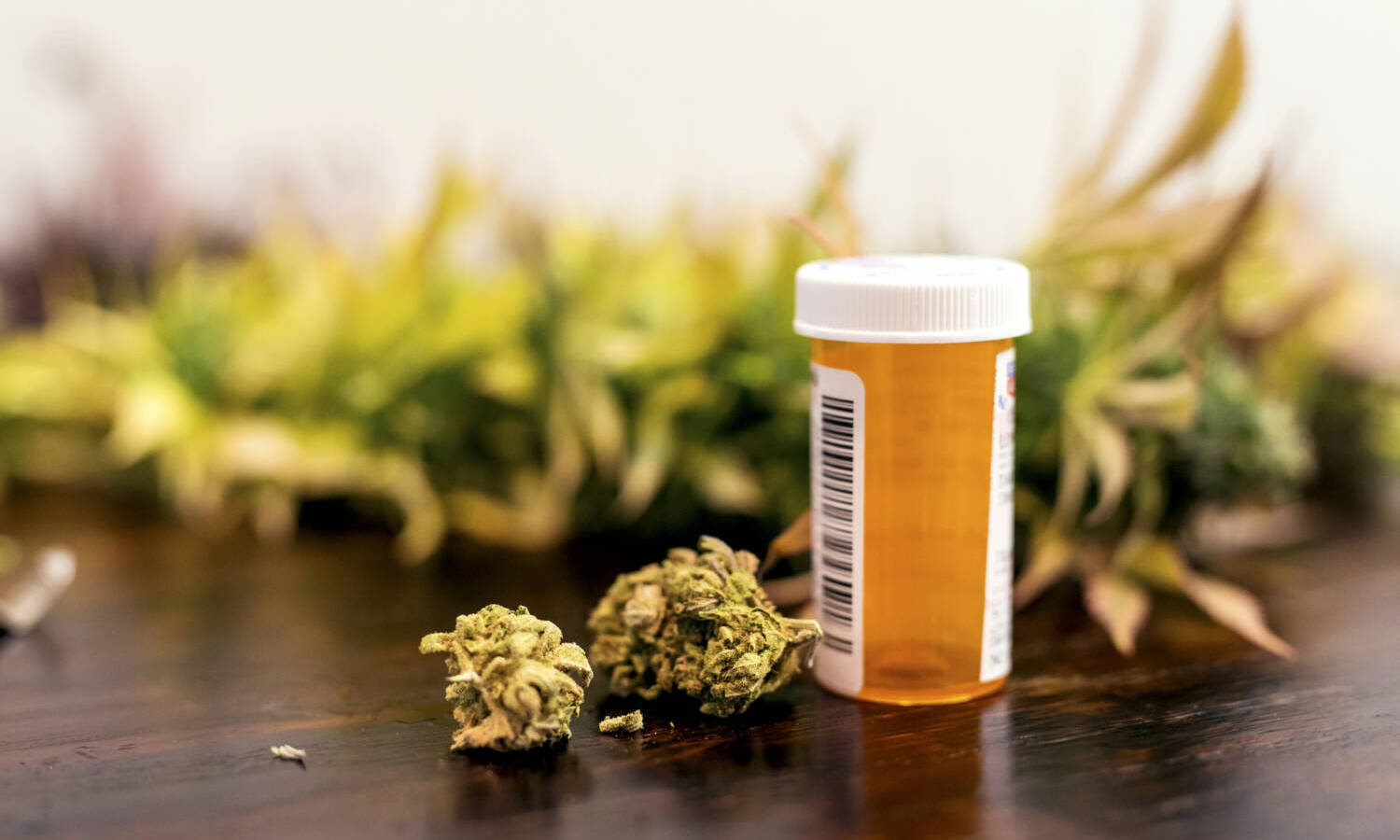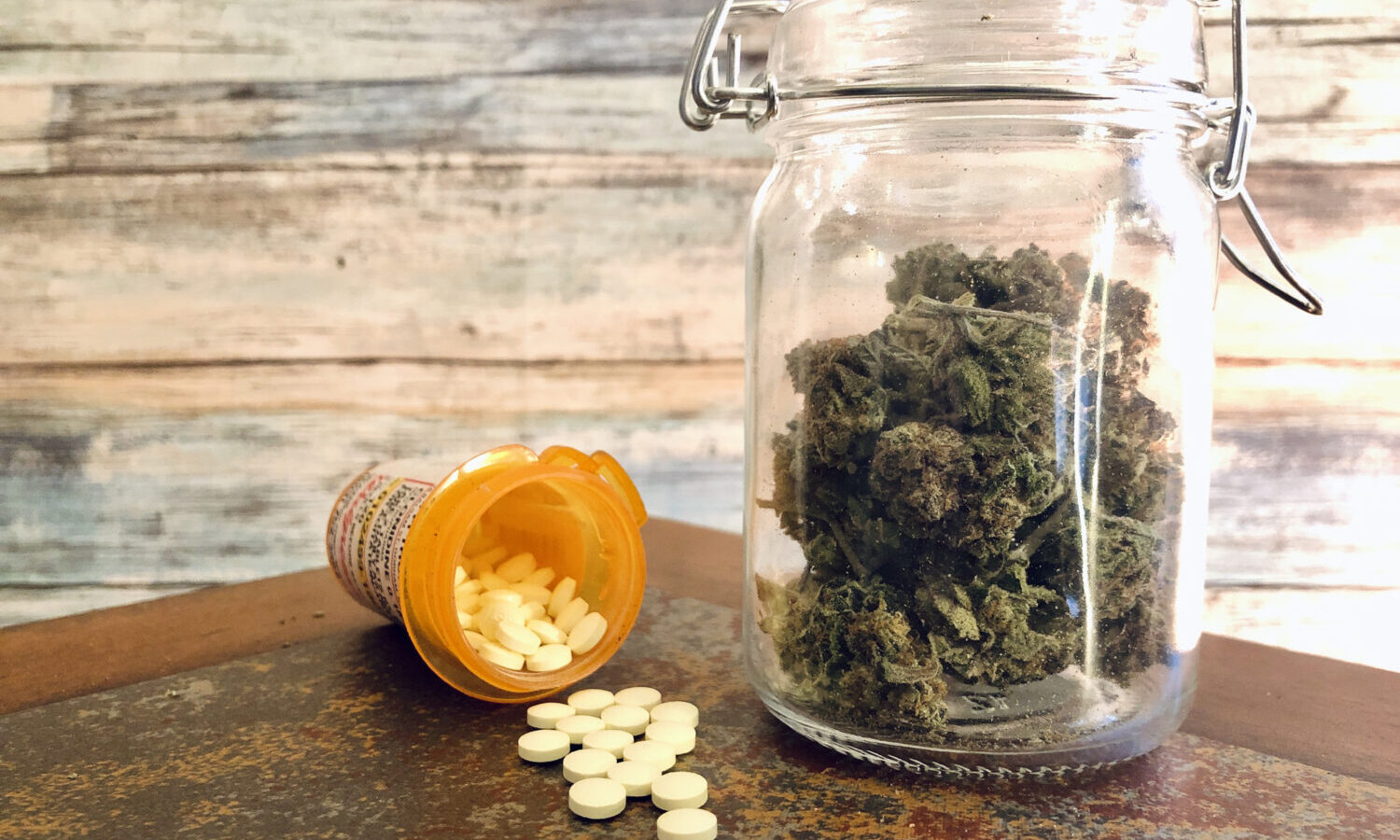To think that Pharma doesn’t have a strategy against a plant that is costing them upwards to $10 billion of lost potential revenue is to be ignorant of the ways of Pharma.
What is big pharma’s next move with legal marijuana? Want to know why historically they sat in opposition of cannabis legalization? Well, if the findings of the latest study published in the journal PLOS ONE, their loss of revenue per legalization event could be a great indicator.
Per Marijuana Moment: “The peer-reviewed research article, published in the journal PLOS ONE on Wednesday, looked at stock return and prescription drug sales data for 556 pharmaceutical companies from 1996 to 2019, analyzing market trends before and after the enactment of medical and adult-use cannabis legalization laws at the state level.
“The stock returns were ‘1.5-2% lower at 10 days after legalization,’ the study authors founds. “Returns decreased in response to both medical and recreational legalization, for both generic and brand drugmakers. Investors anticipate a single legalization event to reduce drugmaker annual sales by $3 billion on average.”
While there has been several reports that cannabis patients prefer cannabis over their prescription meds, this study definitely shows the negative impact on Pharma ROI post legalization. However, it’s not just brand name pharmaceuticals that are taking a hit. It seems that cannabis is supplanting a lot of other generic brands as well.

Researchers at the California Polytechnic State University and University of New Mexico commented:
“By expanding access and, thus use, legalization could permit cannabis to compete with conventional pharmaceuticals. Largely unpatentable, cannabis may act like a new generic entrant following medical legalization, leading some individuals to substitute away from other drugs toward cannabis. However, unlike a conventional new generic drug, cannabis use is not restricted to a single or limited set of conditions. This means that cannabis acts as a new entrant across many different drug markets simultaneously.”
Now, for some, the notion of 1.5-2% doesn’t seem like much, but on Pharma scale profits it is quite significant as the study authors related, “We find the average change in a firm’s market value per legalization event is $63 million with a total impact on market value across firms per event of $9.8 billion.”
With that much money being sucked up by cannabis, it’s no wonder that the pharmaceutical companies were hesitant towards legalizing weed. While some pharmaceutical companies are investing in creating cannabis based medicines, it’s the opioid manufacturers that are losing the most.
Not True Losses
If you look at the profits of Pharma post legalization, they still continued to make money despite legalization. However, what researchers have noticed is that the “projections” made by Pharma weren’t met. This is one of the major differences that they found, however, this isn’t to say that there was an actual loss of revenue.
According to Marijuana Moment:
“The study also factored in shifts in pharmaceutical drug sales post-legalization. “Using the historical price-to-sales ratio of drugmakers for the year associated with each legalization event, this implies a change in annual sales across all drugmakers of $3 billion per event,” it says.”
Yet, it’s also important that we don’t jump the gun and cite all of this as fact as the study authors themselves admitted.
RELATED: How Many Billions Will Big Pharma Lose If Cannabis Gets Legalized?
“The economic significance of an estimated $9.8 billion loss in market value across firms per cannabis legalization event is extremely large, however our results should be interpreted cautiously. A key limitation is that we model investors as rational, which may overstate the economic significance of our results. Second, we are limited to publicly traded firms and past legalization events. Third, we note that estimates may be sensitive to our choice of using 150 to 50 days before the legalization event. Finally, we expect there to be measurement error due to heterogeneity in the legalization and subsequent regulatory processes.
“For private and public drugmakers, we expect the response to legalization to include investment and marketing,” the study concludes, citing the fact that Pfizer spent billions to acquire a “biotech company that focuses on cannabinoid-type therapies.
“’Pharmaceutical firms have devoted substantial lobbying efforts and dollars into fighting cannabis legalization,’ it continues. ‘These are signs that the pharmaceutical industry from a marketing perspective, cannabis currently remains far from an [Food and Drug Administration]-approved therapeutic equivalent, and this might explain why pharmaceutical firms have spent less effort on detailing visits to doctors.’
“’Looking beyond effects for different stakeholder populations, our study suggests cannabis might be a useful tool for increasing competition in U.S. drug markets,’ the authors said.”

It’s important to note that these pharmaceutical companies remain opposed mainly because they cannot patent cannabinoids. Since cannabis is a very simple plant to grow at home, they don’t want it legal on a federal level. Imagine if anyone could grow their own mild-pain relievers, appetite stimulators, mood enhancers, with a little bit of sunshine and dirt?
This is something that Pharma had imagined — and they didn’t like it.
The Reason for Federal Stalling?
While the Democrats and Republicans bicker over whether inclusivity clauses should be added to cannabis legalization, I cannot help thinking that the “sponsors of politicians” might not have some influence over how people are voting. After all, nearly 70% of the US population favors cannabis legalization, yet despite this super majority, cannabis remains illegal on a federal level.
Now if we take a look at the people who take money from Pharma or who hold stock in Pharma and are currently in office, we might be able to paint a picture.
Of course, there is hardly any direct paper trails showcasing Big Pharma’s opposition — save donating to anti-cannabis organizations. However, we don’t need evidence to understand the nature of Pharma.
RELATED: Do Cannabis Legalization Efforts Suggest Joe Biden Is A Pawn For Big Pharma?
You see, Pharma plays the market like a game of chess and the pieces are your representatives.
Watch how Pharma spends their money when it comes to voting on key regulatory issues that would affect their bottomline.
According to KHN.ORG:
“Pharmaceutical companies and their lobbying groups gave roughly $1.6 million to lawmakers during the first six months of 2021, with Republicans accepting $785,000 and Democrats $776,200, the Pharma Cash to Congress database shows. Since the 2008 cycle, the industry has generally favored Republicans. The exception was 2009-10, the last time Democrats controlled both chambers of Congress and the White House.
“Democrats again narrowly hold both the House and Senate, and political scientists and other money-in-politics experts said the contributions likely reflect who is in power, which lawmakers face tougher reelection bids next year, and who has outsize sway over legislation affecting the industry’s bottom line.
“Several pharmaceutical companies paused contributions to Republican lawmakers who voted against certifying the results of the 2020 election, blunting the GOP’s total fundraising haul and overall industry giving compared with other years.”

As you can see, their money influences politics. This is nothing new, and if they are doing this so blatantly with Medicare regulations, what makes you think they don’t have any sway when it comes to cannabis legalization.
Of course, at this point it’s just “hearsay,” but considering the nature of Big Pharma, it wouldn’t surprise me if in the next 5 years we find actual evidence of them tampering with cannabis legalization, especially if people are more hesitant to use pharmaceuticals if cannabis is an alternative to treating the symptoms of their conditions.
To think that Pharma doesn’t have a strategy against a plant that is costing them upwards to $10 billion of lost potential revenue is to be ignorant of the ways of Pharma.
KHN.ORG goes on to report:
The drug industry’s campaign contributions are markedly strategic, said Steven Billet, an associate professor at the Graduate School of Political Management at George Washington University.
“This is a really well-organized commercial sector,” Billet said. “If I’m one of these PACs, I’ve surveyed the landscape at the front end of the process, decided on our agenda and budget, and figured out who I may be able to get to and who I wouldn’t be able to get to.”
Does this sound like bribery to you? It sure sounds like that to me, but of course, when politicians accept money from private companies who are supposed to be regulated by these very politicians we call it lobbying.
Bottom Line
Cannabis legalization directly affects Pharma’s bottom line. Pharma pays politicians to “vote” the way they want to vote. In other words, they use money to buy representation that is supposed to represent you, but instead represents primarily the needs of their donors. In this case, Pharma.
Despite the US having a super majority in favor of ending the war on cannabis, we still have the Federal government stalling at every opportunity they have. Some might say that it’s “The Republicans”, but as we saw, both sides are taking money at roughly equal sizes. The politicians running the show have a higher likelihood of being bribed by Pharma.
And even though the Democrats have been “complaining” that the only reason weed is illegal is because of Republican opposition, we’re seeing that after two years of Dems holding majority of the power — IT’S STILL NOT LEGAL!
In fact, Biden and his admin had done some pretty insane actions against the cannabis community like firing staffers over past cannabis use, calling cannabis users “untrustworthy and unethical and dangerous” and dodging any question about “keeping their promises”.
Could this be because their Pharma masters are telling them to behave like this? Who knows, but it certainly smells like it.
This article was created in partneship with Cannabis.net


